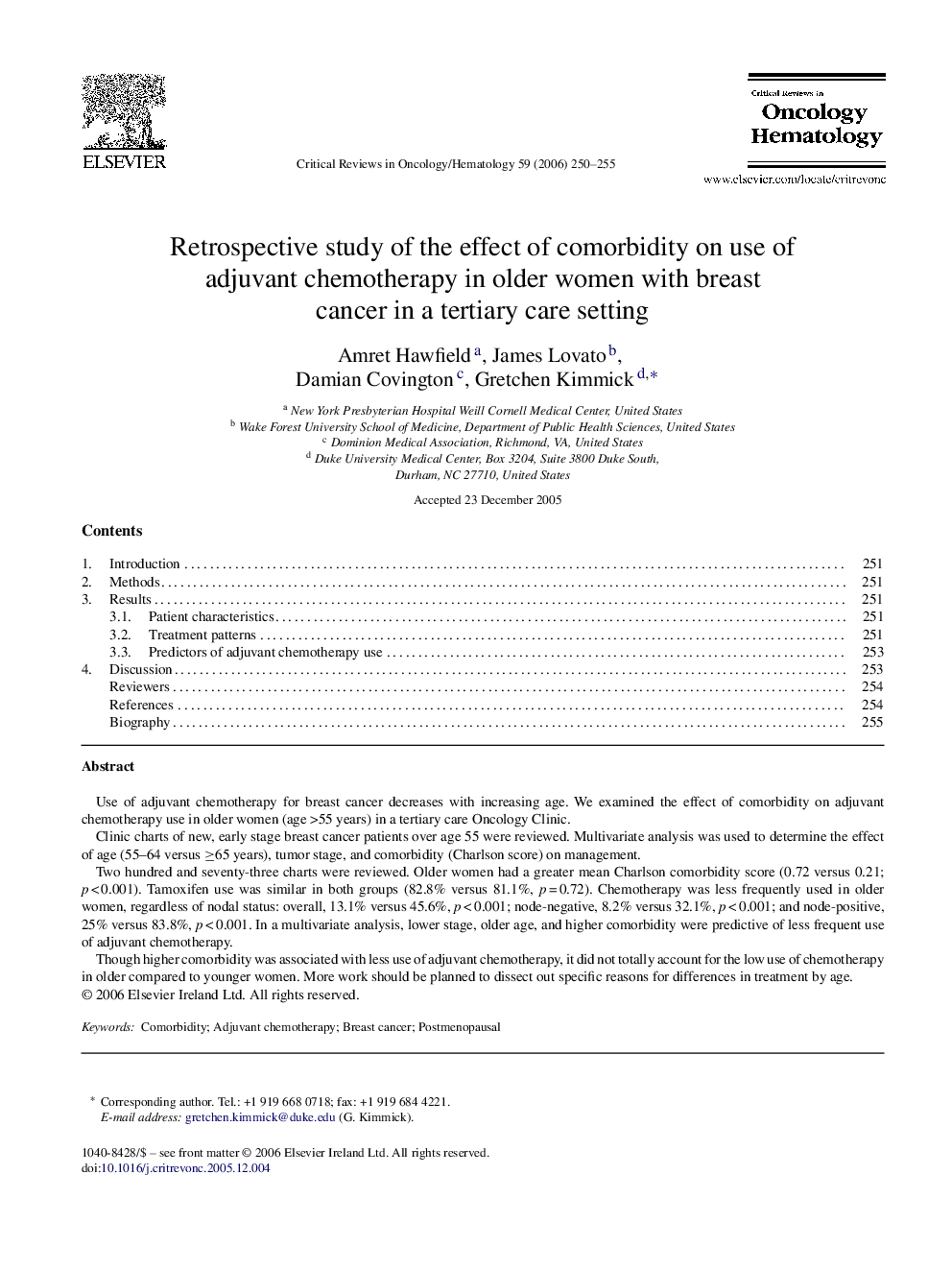| Article ID | Journal | Published Year | Pages | File Type |
|---|---|---|---|---|
| 3330403 | Critical Reviews in Oncology/Hematology | 2006 | 6 Pages |
Use of adjuvant chemotherapy for breast cancer decreases with increasing age. We examined the effect of comorbidity on adjuvant chemotherapy use in older women (age >55 years) in a tertiary care Oncology Clinic.Clinic charts of new, early stage breast cancer patients over age 55 were reviewed. Multivariate analysis was used to determine the effect of age (55–64 versus ≥65 years), tumor stage, and comorbidity (Charlson score) on management.Two hundred and seventy-three charts were reviewed. Older women had a greater mean Charlson comorbidity score (0.72 versus 0.21; p < 0.001). Tamoxifen use was similar in both groups (82.8% versus 81.1%, p = 0.72). Chemotherapy was less frequently used in older women, regardless of nodal status: overall, 13.1% versus 45.6%, p < 0.001; node-negative, 8.2% versus 32.1%, p < 0.001; and node-positive, 25% versus 83.8%, p < 0.001. In a multivariate analysis, lower stage, older age, and higher comorbidity were predictive of less frequent use of adjuvant chemotherapy.Though higher comorbidity was associated with less use of adjuvant chemotherapy, it did not totally account for the low use of chemotherapy in older compared to younger women. More work should be planned to dissect out specific reasons for differences in treatment by age.
